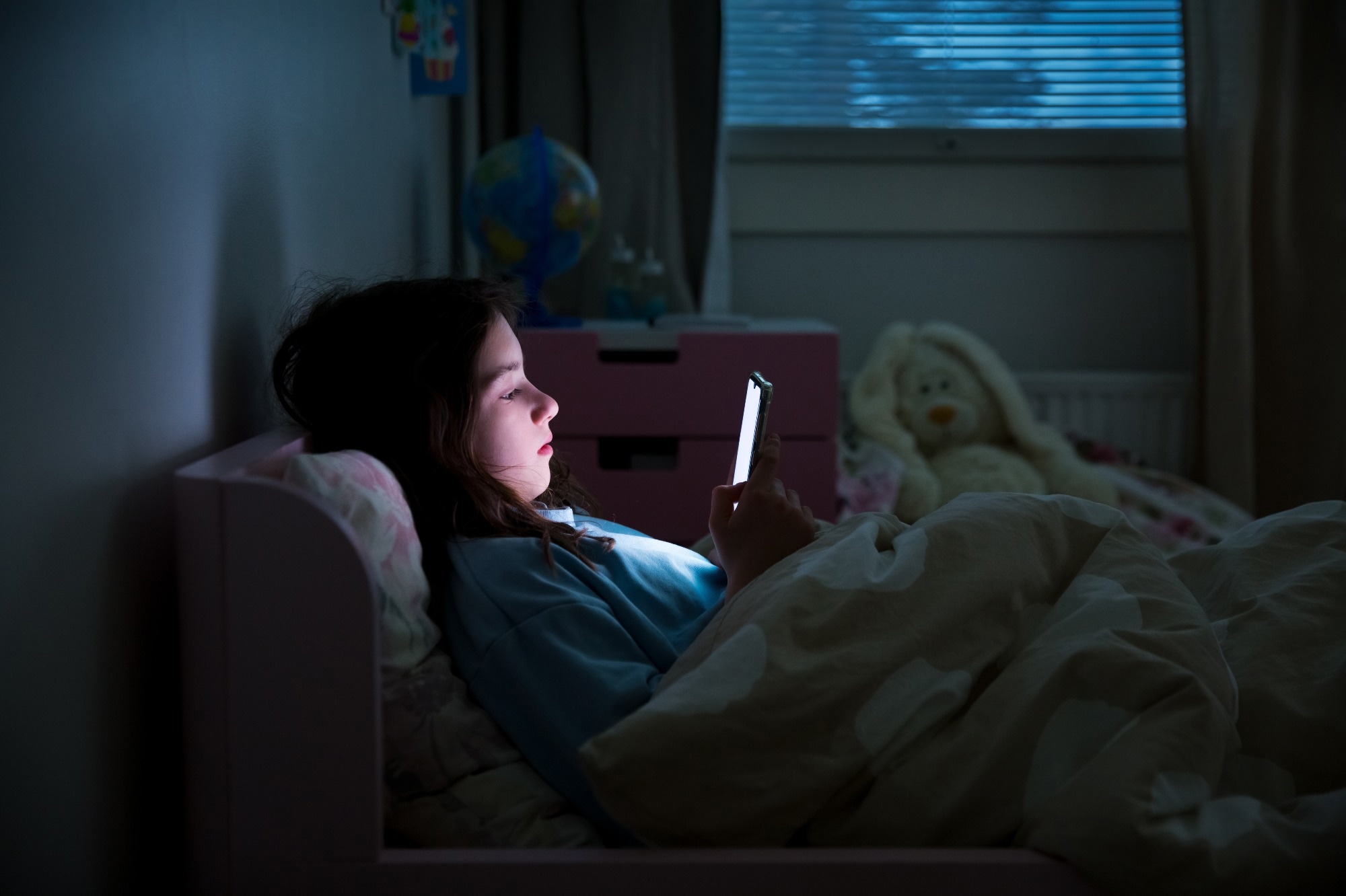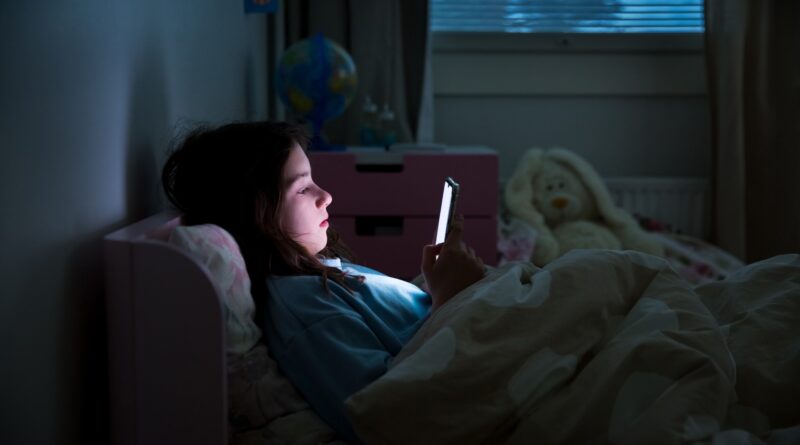Nighttime phone use worsens sleep and mental health in children, especially victims of cyberbullying
 Education: Nighttime Phone Use and Past Exposure to Cyberbullying and Its Impact on Sleep and Mental Health in Australian Children Aged 7 to 19 Years.. Image credit: Aleksandra Suzi/Shutterstock.com
Education: Nighttime Phone Use and Past Exposure to Cyberbullying and Its Impact on Sleep and Mental Health in Australian Children Aged 7 to 19 Years.. Image credit: Aleksandra Suzi/Shutterstock.com
In a recent study published in the journal Youthresearchers examined whether late-night phone use and cyberbullying were independently associated with sleep quality and childhood depression and whether late-night phone use moderated the relationship between bullying and stress and poor sleep during childhood.
Rear end
Now extensive research supports the relationship between the use of digital devices during the night and sleep issues such as delayed sleep and interrupted and shortened sleep. The use of cell phones at night is very common among young people with increased use of social media and texting during sleep.
The widespread use of cell phones has also exposed children to cyberbullying, which includes bad behavior such as cyberstalking, cyberbullying, burning or using threatening or abusive language repeatedly against someone on an online platform, and doxing, which is the act of making personal information available online without permission.
These acts of cyberbullying can affect a child or teenager’s mental health and cause psychological problems. One of the biggest concerns about late-night phone use is that it allows cyberbullying to happen at night, which affects mental health and sleep quality.
About education
The present study examined whether late-night phone use and cyberbullying show independent associations with stress and poor sleep among children.
The researchers also examined whether the use of the phone at night influenced the relationship between cyberbullying and the deterioration of sleep quality and mental well-being, focusing on gender and age.
The researchers used a cross-sectional study design to investigate the association using database data from a survey called Resilient Youth Australia, which was conducted among students between the ages of 7 and 19 from 918 schools across the country. in width.
Study participants were recruited from private and public schools to ensure that children from all socioeconomic backgrounds were included in the study.
A validated patient health questionnaire for measuring anxiety and depression was used to assess depression.
Children were asked how often they had experienced mental health problems in the past two weeks, and their responses were coded to obtain normal, borderline, and significant health conditions. mental health.
Other questions were used to find out how the person uses the phone at night, the time they sleep and the frequency of cyberbullying incidents.
Phone use during the night was divided between never and more than five times a week, while sleeping time of 8 hours per night was divided between occasionally. The frequency of cyberbullying was ranked between never equal to or more than once in the past.
Students completed the online test on their laptops or mobile devices during class under teacher supervision. Furthermore, their data were anonymized, and only pooled data were used for analysis.
Nighttime phone use, sleep time, and stress were analyzed as covariates, and stress data were coded as normal to mild or moderate to moderate. to a strong one.
Additionally, the survey was stratified by age, whether the student was in primary or secondary school and gender. Based on findings from other studies, researchers hypothesized that girls are more vulnerable to cyberbullying and are more prone to sleep disturbances and stress.
Results
The study found that late-night phone use was common among children, especially among high school students, with more than 60% of students reporting late-night phone use at least once a week.
Additionally, nearly 15 percent of students reported being cyberbullied in the past quarter, with boys experiencing more cyberbullying in elementary schools and cyberbullying in secondary schools. as big as girls.
In addition, children who were cyberbullied were found to be more likely to use their phones at night, which was linked to negative effects on sleep and stress. A large number of children did not meet the recommended guidelines for bedtime.
One in four elementary school children reported not getting the recommended 8 hours of sleep a night, as did 40% of high school students, especially girls.
Secondary school girls also reported higher levels of stress, with gender-based differences becoming more pronounced in adolescence. However, regardless of age or gender, students who have been cyberbullied have reported experiencing severe stress and poor sleep.
Nighttime phone use was found to moderate the relationship between cyberbullying and poor sleep among students of all ages and genders.
However, the moderating effect of late-night phone use on the relationship between cyberbullying and stress was significant for secondary school boys.
Decisions
In general, the studies showed that the use of the phone at night among children and adolescents was significantly associated with lack of sleep and high levels of stress, especially in children who were bullied on the Internet.
The study highlighted the need to control the use of digital devices at night to improve mental well-being and sleep quality among children of all ages and genders.
The researchers also recommended further research into the effects of cyberbullying during late-night phone use.
Journal reference:
-
Centofanti, S., Lushington, K., Wicking, A., Wicking, P. & Dorrian, J. (2024) Late Night Phone Use and Past Use of Cyberbullying and Their Impact on Sleep and Mental Well-being in Children Australians aged 7 to 19. Age. Youth 4, 355–374. doi:10.3390/bacha4030025. https://www.mdpi.com/2673-7051/4/3/25
#Nighttime #phone #worsens #sleep #mental #health #children #victims #cyberbullying
